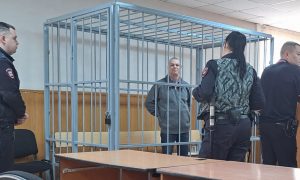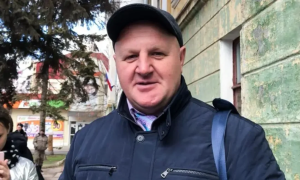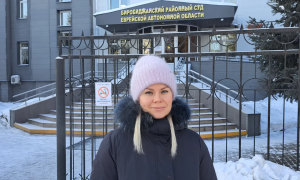
Media outlets continued to release articles or broadcasts defaming minority religious groups they regarded as “nontraditional.” Jehovah’s Witnesses reported a number of defamatory articles and broadcasts. Nongovernmental organizations (NGOs) and academics said members of some religious groups, including Muslims who wear headscarves or other identifying attire as well as some Christian groups, including evangelicals, Baptists, and Jehovah’s Witnesses, continued to face greater societal scrutiny and discrimination.
Despite limitations on in-person meetings and visits during the global pandemic, the Secretary of State, the Ambassador at Large for International Religious Freedom, the U.S. Ambassador, and other U.S. officials engaged in person and via virtual platforms with the government to urge respect for religious freedom, both in general and with regard to specific cases, including a regular and recurring dialogue with the MISD and CRA. This included raising concerns regarding the restrictive effects on religious freedom of the government’s implementation of the religion law and the criminal and administrative codes, especially concerning criminal penalties for peaceful religious speech, praying without registration, and censorship of religious literature. The country’s bilateral Religious Freedom Working Group with the United States met in person in February and virtually in October to discuss cooperation to allow all persons to practice their faiths freely in the country. U.S. officials visited various houses of worship and maintained contact with a wide range of religious communities and religious freedom advocates. The embassy also engaged in social media outreach to urge respect for religious freedom.
Section I. Religious Demography
Section II. Status of Government Respect for Religious Freedom
LEGAL FRAMEWORK
The constitution defines the country as a secular state and provides for freedom of religion and belief as well as for the freedom to decline religious affiliation. These rights may be limited only by laws and only to the extent necessary for protection of the constitutional system, public order, human rights and freedoms, and the health and morality of the population. Under the constitution, all persons have the right to follow their religious or other convictions, take part in religious activities, and disseminate their beliefs. These rights, however, are in practice limited to registered or “traditional” religious groups. “Traditional” is not defined by law, but it typically refers to Hanafi Sunni Islam, the Russian Orthodox Church, Catholicism, Lutheranism, Judaism, and other major or historic religions.
The MISD and its component, the CRA, regulate the practice of religion in the country. By law, the MISD is responsible for the formulation and implementation of state policy on religion as well as facilitating government and civil society engagement. It also considers potential violations of the laws on religious activity and extremism. The MISD drafts legislation and regulations, conducts analysis of religious materials, and makes decisions on censorship. All religious groups are required to submit all religious materials for approval before dissemination. The MISD cooperates with law enforcement bodies to ban religious groups and sanction individuals who violate the religion law, coordinates actions of local government to regulate religious practices, and provides the official interpretation of the religion law.
The counterterrorism law requires religious organizations to secure their buildings of worship against potential terrorist attacks; the government may take action against religious organizations for failure to do so. The law states the government shall not interfere with the choice of religious beliefs or affiliation of citizens or residents unless those beliefs are directed against the country’s constitutional framework, sovereignty, or territorial integrity.
The criminal and administrative codes include penalties for unauthorized religious activity, which includes the arrangement of and participation in activities of unregistered religious groups, participation in religious activities outside permitted areas, unlicensed distribution of religious materials or training of clergy, sale of religious literature without government approval or in places not approved by the government, and discussion of religion for the purpose of proselytization without the required missionary registration.
The criminal code prohibits the “incitement of interreligious discord,” which includes “propaganda of exclusivity, superiority, or inferiority of citizens according to their relation to religion [and other] origin.” It also criminalizes the creation and leadership of social institutions that proclaim religious intolerance or exclusivity, which is punishable by imprisonment from three to seven years.
The extremism law, which applies to religious groups and other organizations, gives the government discretion to identify and designate a group as an “extremist organization,” ban a designated group’s activities, and criminalize membership in a banned organization. The law defines “extremism” as an organization or commission of acts in pursuit of violent change of the constitutional system; violation of the sovereignty or territorial integrity of the country; undermining of national security; violent seizure or retention of power; armed rebellion; incitement of ethnic, religious, or other forms of social discord accompanied by calls to violence; or the use of any religious practice that causes a security or health risk. An extremist organization is a “legal entity, association of individuals and (or) legal entities engaged in extremism, and recognized by the court as extremist.” The law provides streamlined court procedures for identifying a group as “terrorist or extremist,” reducing the time necessary for a court to render judgement and act on a decision to 72 hours. After a legal finding of a violation, the law authorizes officials to immediately revoke the organization’s registration, thus ending its legal existence, and to seize its property. Prosecutors have the right to annually inspect all groups registered with state bodies for compliance with all applicable laws.
Under the law on countering terrorism, the Ministry of Finance may freeze the financial accounts of persons convicted of terrorism or extremism crimes.
The administrative code prohibits “spreading the creed of religious groups (that are) unregistered” in the country, an offense punishable by a fine of 252,500 tenge ($600). A foreigner or stateless person found guilty may also be deported.
A religious organization may be designated “national,” “regional,” or “local.” To register at the local level, an organization must submit an application to the Ministry of Justice that lists the names and addresses of at least 50 founding members. Religious organizations may be active only within the geographic limits of the locality in which they register unless they have sufficient numbers to register at the regional or national level. Regional registration requires at least two local organizations, each located within a different region (province), and each local group must have at least 250 members. National registration requires at least 5,000 total members and at least 300 members in each of the country’s 14 regions and the cities of Nur-Sultan, Almaty, and Shymkent. Only groups registered at the national or regional level have the right to open educational institutions for training clergy.
The law allows the government to deny registration to a religious group based on an insufficient number of adherents or on inconsistencies between the religious group’s charter and any national law, as determined by an analysis conducted by the CRA. According to the administrative code, individuals participating in leading or financing an unregistered, suspended, or banned religious group may be fined between 126,250 tenge ($300) and 505,000 tenge ($1,200).
The administrative code mandates a 505,000 tenge ($1,200) fine and a three-month suspension from conducting any religious activities for registered groups holding religious gatherings in buildings that are not approved for that purpose; importing, producing, or disseminating religious materials not approved by the CRA; systematically pursuing activities that contradict the charter and bylaws of the group as registered; constructing religious facilities without a permit; holding gatherings or conducting charity events in violation of the law; or otherwise defying the constitution or laws. Private persons engaged in these activities are subject to a fine of 126,250 tenge ($300). Police may impose these fines without first going to court. The fines may be appealed to a court.
If an organization, its leaders, or members engage in activities not specified in its charter, it is subject to a warning, a fine of 252,500 tenge ($600), or both. Under the administrative code, if the same violation is repeated within a year, the legal entity is subject to a fine of 378,750 tenge ($900) and a three- to six-month suspension of activities.
According to the administrative code, if a religious group engages in a prohibited activity or does not rectify violations resulting in a suspension, an official or the organization’s leader is subject to a fine of 505,000 tenge ($1,200), the entity is also subject to a fine of 1,262,500 tenge ($3,000), and its activities are banned.
The law authorizes local authorities to “coordinate” the location of premises for religious events outside religious buildings. By law, religious activities may be held in residences, provided that organizers take into account the “rights and interests of neighbors.” Authorities sometimes interpret this as a requirement to receive permission from the neighbors.
The government prohibits individuals who do not pay their fines from traveling outside the country.
The law prohibits coercion to force a person’s conversion to any religion or to force a person’s participation in a religious group’s activities or in religious rites. The law further bans activities of religious organizations that involve violence against citizens or otherwise harm the health or morality of citizens and residents, force them to end marriages or family relations, violate human rights and freedoms, or force citizens to evade performance of duties specified in the constitution and legislation. The law prohibits methods of proselytizing that take advantage of a potential convert’s dependence on charity. The law also prohibits blackmail, violence or the threat of violence, or the use of material threats to coerce participation in religious activities.
The law states that in cases when a prisoner seeks the help of a clergy member to perform a religious rite, he or she may invite a clergy member of a formally registered religious group to a detention facility, as long as this access complies with the prison’s internal regulations. The law bans construction of places of worship within prison territory. Pursuant to the law, religious organizations may participate in monitoring prisons, including creating and implementing programs to improve the correctional system and developing and publicly discussing draft laws and regulations as they relate to the prison system. Religious groups may identify, provide, distribute, and monitor the use of humanitarian, social, legal, and charitable assistance to prisoners. They may provide other forms of assistance to penitentiary system bodies, as long as they do not contradict the law. According to the law, prisoners may possess religious literature, but only if it is approved following an analysis conducted by a CRA religious expert.
The law defines “religious tourism” as a “type of tourism where people travel for performance of religious rites in a country (place) of temporary residence” and requires the MISD to regulate it. Together with the Sunni Hanafi Spiritual Administration of Muslims (SAMK), the MISD oversees the process by which individuals participate in the Hajj or in other travel for the performance of religious rites. The government requires that specially selected guides and imams accompany each group and states that the rules are designed to ensure pilgrims are not recruited by extremist religious groups.
The law prohibits religious ceremonies in government buildings, including those belonging to the military or law enforcement.
The law states production, publication, and dissemination of religious literature and information materials of religious content are allowed only after receiving a positive expert opinion from the CRA. The law allows one copy of published religious materials to be imported for personal use without review by a CRA religious expert.
The law states the government shall not interfere with the rights of parents to raise their children consistent with their religious convictions, unless such an upbringing harms the child’s health or infringes upon the child’s rights.
The law requires organizations to “take steps to prevent involvement or participation of anyone under the age of 18 in the activities of a religious association” if one of the parents or other legal guardians objects. The law bans religious activities, including proselytizing, in children’s vacation, sport, creative, or other leisure organizations, camps, or sanatoria. The extent to which organizations must prevent underage persons’ involvement in religious activity is not specifically outlined and has not been further defined by authorities.
The law prohibits religious instruction in public schools, colleges, or universities. Homeschooling for religious reasons is also prohibited. The law allows afterschool and other supplemental religious instruction as long as it is provided by a registered religious group. A decree mandates that schoolchildren wear school uniforms that comply with the secular nature of education and prohibits inclusion of any elements that could indicate religious affiliation, such as head coverings.
The election law prohibits political parties based on religious affiliation.
The criminal code prohibits creating, leading, or actively participating in a religious or public association whose activities involve committing acts of “violence against citizens or the causing of other harm to their health or the incitement of citizens to refuse to carry out their civil obligations as well as the creation or leadership of parties on a religious basis.” The code punishes such acts with a fine of up to 15.2 million tenge ($36,100) or up to six years’ imprisonment. To perform missionary or other religious activity in the country, a foreigner must obtain a missionary or religious visa. These visas allow a person to stay for a maximum of six months, with the possibility to apply to extend the stay for another six months. To obtain missionary visas, applicants must be invited by a religious group formally registered in the country. The CRA must approve the letter of invitation. Applicants must obtain consent from the CRA each time they apply. The CRA may reject missionary visa applications based on a negative assessment from CRA religious experts, or if it deems the missionaries represent a danger to the country’s constitutional framework, citizens’ rights and freedoms, or any person’s health or morals. The constitution requires foreign religious groups to conduct their activities, including appointing the heads of local congregations, “in coordination with appropriate state institutions,” notably the CRA and the Ministry of Foreign Affairs. Foreigners may not register religious groups.
Local and foreign missionaries are required to register annually with the local executive body of a region or of the cities of Nur-Sultan, Almaty, and Shymkent and provide information on their religious affiliation, intended territory of missionary work, and time period for conducting that work. Missionaries must submit all literature and other materials intended to support their missionary work together with their registration application. Use of materials not vetted during the registration process is illegal. A missionary must produce registration documents and a power of attorney from the sponsoring religious organization to work on its behalf. The local executive body of a region or the cities of Nur-Sultan, Almaty, and Shymkent may refuse to register missionaries whose work is deemed to “constitute a threat to the constitutional order, social order, the rights and freedoms of individuals, or the health and morals of the population.”
The law does not provide for conscientious objection to mandatory military service on religious grounds, but the government has exempted Jehovah’s Witnesses from mandatory service.
The country is a party to the International Covenant on Civil and Political Rights.
GOVERNMENT PRACTICES
According to the international religious freedom NGO Forum 18, 24 Sunni Muslims were serving sentences connected to their religious activities or beliefs. Three Protestant Christians were given prison terms in absentia. Six individuals were serving “restricted freedom” sentences that consist of probation plus compulsory community service; such sentences could also include court-imposed restrictions on their freedom of movement. Sixteen individuals who had completed their prison terms were banned from religious activities.
Media reported that on January 27, the Almaly district court found Karlygash Adasbekova and Daria Nyshanova guilty of incitement of religious discord and supporting Hizb ut-Tahrir, an organization banned by the government as extremist, through online posts to a WhatsApp chat group. During the trial, two witnesses withdrew their earlier testimony against the accused, and the witness who made the initial report that led to the Committee of National Security (KNB) investigation could not remember which WhatsApp posts he had cited in his report. Despite these discrepancies, the judge found the defendants guilty and sentenced each of them to five years of restricted freedom.
On January 21, the Supreme Court reviewed the Prosecutor General’s petition challenging the 2018 verdict in the case of Dadash Mazhenov and sent the case back to the appellate court for a new trial on the grounds that the expert who had analyzed Mazhenov’s online posts lacked the appropriate license and that the defense’s statements were not sufficiently verified. Mazhenov, a Sunni Muslim, was sentenced to seven years and eight months imprisonment in 2015 for supporting terrorism in online posts. On October 13, the appeals panel of the Akmola provincial court upheld the 2018 verdict against Mazhenov. In March, Mazhenov filed a complaint stating he was tortured for praying while held in a labor camp in the city of Shymkent in the summer of 2019. In May, the Coalition against Torture, a local NGO that monitors prisons and detention facilities, appointed a lawyer to advocate on Mazhenov’s behalf. The NGO noted that few prison torture cases ever reached court, with few officials found guilty.
Jehovah’s Witnesses reported that 23 Jehovah’s Witness conscientious objectors encountered difficulties in obtaining exemption from military service, although all cases were eventually resolved through dialogue with the authorities. Jehovah’s Witnesses representatives said that local enlistment officers initially considered the certificates issued by the recruits’ local religious communities to be insufficient evidence to exempt the young men. The communities then provided clarification of the applicants’ eligibility for exemption, as well as letters from the conscientious objectors formally asking to be released from military service.
Religious freedom observers consistently reported that authorities continued to use the religion law to harass and restrict minority religious groups with fines and limitations on their activities. Violations included attending worship meetings not approved by the state; offering, importing, or selling religious literature and pictures, including on the internet; sharing or teaching faith; and violating procedures for praying in mosques. The CRA reported 552 administrative prosecutions for violations of the religion law in 2019, the latest data available.
During the year, authorities dropped the 2019 charges against the International Society of Krishna Consciousness (ISKCON) for conducting a religious event without prior permission from the local government. ISKCON had been charged after a 2019 police raid on an apartment in Atyrau.
According to Jehovah’s Witnesses, 63 members of the community were detained on charges of illegal missionary activity between January and October. Of these, 38 were given oral warnings, 14 were given written warnings, and 11 were taken to court for alleged violation of the religion law. Of those 11, nine were acquitted and two were found guilty and fined 277,800 tenge each ($660).
On March 15, President Kassym-Jomart Tokayev issued a decree declaring a state of emergency to fight the COVID-19 pandemic. As part of wide-ranging emergency restrictions, religious ceremonies were prohibited and the operations of mosques, churches, and other religious centers were temporarily suspended. On May 11, the state of emergency ended. Beginning May 18, mosques, churches, and other houses of worship were able to operate at 30 percent capacity and with other region-specific public health-related restrictions. Throughout the year, region-specific restrictions changed frequently in efforts to contain the spread of COVID-19. At year end, large religious services (i.e., weddings and funerals) were still prohibited on public health grounds.
Religious minority groups stated that authorities used COVID-19 pandemic restrictions to discriminate against them. In April, courts in Karaganda Province found the pastors of three local evangelical Baptist communities liable for violation of the COVID-19 quarantine rules because they allowed parishioners to gather for Sunday services on March 29. The pastors were jailed for three days, and Pastor Dmitry Iantsen in Termirtau was fined 26,510 tenge ($63). The church leaders said the incidents were a result of the lack of clear rules on the allowed size of gatherings. The chief health inspector’s decrees prohibited mass gatherings, but without specifying how many participants constituted such a gathering. The churches said some lawyers and government officials defined 50 to 200 participants as a mass gathering. The pastors said they had taken precautions to prevent the spread of disease, including restricting the number of worshippers present.
On April 22, an evangelical Christian pastor from Shymkent affiliated with the New Life Church received a 10-day prison sentence for conducting missionary activity during the state of emergency. Church representatives said Pastor Zhetis Rauilov was called to a meeting at the mayor’s office by an employee of the local branch of the CRA on April 21 but went home when the official was not in the office, stopping at a supermarket on the way. Police then stopped him, searched his car, and detained him on suspicion of moving through the city to provide groceries to parishioners without permission. (Local restrictions required permission for delivering groceries, but not for simple grocery shopping close to home.) Rauilov said he believed his arrest was orchestrated by local authorities because it took place immediately following the aborted meeting at the mayor’s office. Rauilov served the sentence and was released.
On May 15, according to Forum 18, police raided a shopping center in Aktobe to enforce COVID-19-related restrictions on public gatherings four days after the national pandemic state of emergency had been lifted. The administrator of the shopping center, Gulnar Kurmangaliyeva, was fined 132,550 tenge ($310) for permitting an Islamic prayer room to operate in the shopping center, and authorities closed the prayer room for three months.
Authorities continued to charge individuals under the administrative code for holding unsanctioned religious meetings, offering religious literature for sale, and for other violations of the religion law.
On February 29, police detained Oleg Stepanenko and Nadezhda Smirnova, members of a Christian Evangelical Baptist church in Pavlodar Province, for unsanctioned distribution of religious literature. Local media described them as adherents of a “harmful” religious group. On March 2, the local court found them guilty of breaking the religion law and imposed administrative fines. Authorities also seized and destroyed approximately 200 religious books in their possession.
In September, media reported that the Kokshetau administrative court found an individual guilty of disseminating religious literature, for writing a social media advertisement for books CRA theologians deemed to contain banned extremist content. Government experts found the advertisement while monitoring social media. Police located and charged the author, who was fined 100,000 tenge ($240).
On March 29, Pavlodar police raided the house of worship of the Pavlodar Council of Evangelical Christians and charged a 66-year-old pastor with leading an unregistered religious group. On April 20, the Pavlodar administrative court found the pastor guilty and fined him 194,460 tenge ($460).
The international Christian NGO Open Doors cited the country on its World Watch List for the government’s control over religious expression in the country, including surveillance, raids on church meetings, and arrests. The NGO said Christians from a Muslim background bore the worst persecution.
The government maintained its policy of banning religious clothing in schools. The Ministry of Education and Science continued to prohibit headscarves in schools throughout the country during in-person instruction, but media reported the ban was not strictly enforced during online instruction necessitated by the COVID-19 pandemic. Media reported on September 29 that according to the Aktobe Region Education Department, 11 students chose to study online at their own expense due to the government’s ban on wearing headscarves in schools.
According to Forum 18, some Muslims faced repeated questioning from law enforcement authorities about their faith.
According to CRA statistics for the first nine months of the year, there were 3,818 registered religious associations or branches thereof in the country, compared with 3,770 in 2019.
The government did not approve the registration of Muslim groups apart from those observing the Sunni Hanafi school, which the SAMK oversaw. All other schools of Islam remained unregistered and were officially unable to practice in the country, although religious leaders reported some Muslim communities continued to worship informally without government interference.
The MISD and the SAMK maintained an official agreement on cooperation, and NGOs continued to state this led to the government effectively exercising control over the nominally independent SAMK. By joining the SAMK, Muslim communities relinquished the right to appoint their own imams, subjected themselves to SAMK approval regarding any property actions (such as sales, transfers, or improvements), and were required to pay 30 percent of the mosque’s income to the SAMK. The SAMK also set the curriculum for religious education across the country and provided guidelines and sample texts for sermons during Friday prayers.
The SAMK continued to oversee the opening of new and restored mosques. According to the CRA, there were 2,684 mosques in the country, 46 more than reported in 2019, but the government and news media offered varying and occasionally inconsistent statistics about the number of mosques nationwide.
The SAMK continued to control the activities of all 2,684 formally registered Muslim groups affiliated with the Sunni Hanafi school and had authority over appointment of imams as well as over the administration of examinations and background checks for aspiring imams. The MISD continued to work closely with the SAMK on the training of imams, upgrading madrassahs to the status of degree-granting colleges, and controlling Hajj pilgrimages. The SAMK permitted imams to enroll in baccalaureate, masters, or doctoral programs offered at Nur Mubarak University’s Islamic Studies and Religious Studies departments based on their prior education levels. There were 11 schools for religious training of Sunni Hanafi imams, one for Roman Catholic clergy, and one for Russian Orthodox clergy.
The Ahmadiyya Muslim Community remained unregistered during the year; authorities denied the group reregistration for the sixth time in 2016. Government experts had previously concluded the community’s teachings were not Islamic and that it must remove the word “Muslim” from its registration materials. Community members reported that since they were not registered, they did not engage in any religious activity.
The Council of Baptist Churches stated it continued to refuse on principle to register under the law, in keeping with its policy of maintaining a distance from the government. Community representatives reported that authorities continued to closely monitor their meetings and travels and that police followed and surveilled them, as in prior years.
The Church of Scientology continued to function as a registered public association rather than as a religious organization. The government allowed the Church, as a public association, to maintain resource centers/libraries where members could read or borrow books and host discussions or meetings, but it did not allow the Church to engage in activity considered religious by the government.
Some religious minority groups faced attempts by local governments to seize their property. On September 17, the Almaty City Court upheld an earlier court decision to seize buildings of the New Life Church in Almaty. In 2019, the Almaty Specialized Interdistrict Court had convicted the Church’s three pastors, who fled the country, of using hypnotism and psychological manipulation to harm and defraud former parishioners, and it ordered the seizure of the Church’s property, including buildings, money, and computers. Neither the New Life Church leaders nor their attorney were present at the court hearing, which was held without their knowledge after the court agreed initially to postpone it. The Church immediately filed an appeal. Church representatives said they were particularly concerned about the seizure of two buildings used to support vulnerable individuals, and they expressed fears that some who lived in the buildings would have no place to go if the buildings were confiscated. At year’s end, the seizure of the buildings had been delayed, pending an appeal hearing.
On February 14, the Mayor of Nur-Sultan issued a decree confiscating land shared by the Presbyterian Grace Church and Pentecostal Agape Church in order to build a government-run kindergarten. The Churches lodged a lawsuit against the mayor’s office, but a city court ruled against the Churches on September 7, accepting the mayor’s countersuit that the seizure decree should be enforced. The judge also ordered the Churches to pay for a panel of experts – mostly officials from the mayor’s office – to assess the value of the property. The Churches appealed the decision, but their appeal was denied on December 12. At year’s end, the land had not been confiscated and the Churches were fighting the decree.
On January 21, two ethnic Kazakh Muslims, citizens of China, were convicted of illegally crossing the border from the Xinjiang Uyghur Autonomous Region in China and sentenced to a year in prison. They served shorter sentences and were released. In October, these and another two previously convicted ethnic Kazakh Chinese citizens were granted asylum on the grounds of credible fear of persecution if they returned to China.
In August, the government granted an exception to COVID-19 restrictions on public ceremonies to allow a Jewish group to travel to Almaty to mark the 76th anniversary of the passing of Rabbi Levi Yitzchak Scheerson. The government designated the resting place a National Heritage Site.
The Church of Scientology reported that during the year, its members experienced harassment and intimidation by the authorities, including frivolous lawsuits and smear campaigns on national television, harassment, extrajudicial searches, destructive raids of their premises, and seizure of literature.
According to the Penitentiary Committee of the Ministry of Internal Affairs, all prisons continued to have dedicated specialists charged with creating programs to counter religious extremism, in accordance with a 2017 order issued by the Minister of Internal Affairs adding the position of “religious specialist” to prison staff as part of the State Program for Counteraction against Terrorism and Religious Extremism. Lawyers familiar with the program said most of the specialists lacked education or specialized training.
Section III. Status of Societal Respect for Religious Freedom
NGOs continued to report individuals were wary of “nontraditional” religious groups, particularly those that proselytized or whose dress or grooming, including Islamic headscarves and beards, indicated “nontraditional” beliefs. According to a survey by CRA conducted in 2019 and published in 2020, however, Kazakhstani society was increasingly receptive to those wearing religious clothes, particularly hijabs. In the survey, more than half of respondents (38.4 percent) approved of or were neutral (26.6 percent) to people wearing religious clothes, compared to 31.4 percent of respondents who had negative opinions of those wearing religious clothes.
According to NGO Open Doors, Christians from a Muslim background were persecuted by family, friends and their community.
Section IV. U.S. Government Policy and Engagement
U.S. officials continued to encourage the government to respect individuals’ rights to peaceful expression of religious belief and free practice of religion in bilateral meetings and at meetings of the U.S-Kazakhstan International Religious Freedom Working Group in person in February and virtually in October. U.S. officials expressed concern about vaguely written laws that were broad in scope and lacked specific definition of legal terms that enabled authorities, particularly at the local level, to apply them in an arbitrary manner. They encouraged the government to eliminate burdensome registration requirements for religious communities and to take other steps to amend the religion law to increase the ability of believers to practice their faith. U.S. officials also raised concerns over anti-Semitic content in local media and encouraged fair and equal treatment for faith organizations in land disputes with the government. On social media, the embassy also engaged in outreach to urge respect for religious freedom.
Embassy officials visited houses of worship in several regions of the country and maintained contact with a wide range of religious communities, their leaders, and religious freedom advocates in-person and online. They underscored the importance freedom of religion played in countering violent extremism, expressed concern about further restrictions on religious freedom, and encouraged reform of relevant laws and guidelines so all citizens could conduct peaceful religious activities freely, whether or not they were part of a registered religious group.





